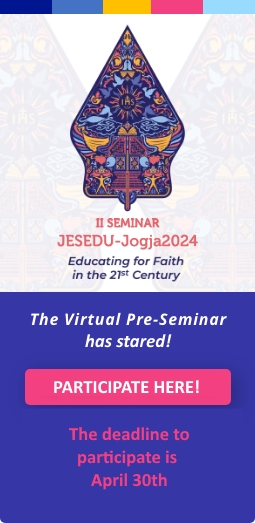I am Mary Joy Ponce-Torres, a proud native of Cebu, Philippines, often hailed as the “Cradle of Christianity in Asia.” My early years were deeply influenced by the devout Catholicism of my parents, instilling in me a strong foundation in faith despite our humble background. The teachings of Christianity, intertwined with the rich history of my city, shaped my spiritual journey.
The presence of God was never distant; it was intricately woven into the fabric of my existence since birth. Throughout my educational journey, I remained guided by my faith, attending esteemed Catholic schools that not only imparted knowledge but also nurtured my spiritual growth.
In the face of life’s challenges, my connection with Jesus deepened, becoming a source of solace and strength during adversity. Through trials and tribulations, my unwavering belief allowed me to persevere with grace and resilience.
A significant turning point in my journey occurred when I became part of the Jesuit community through employment at Sacred Heart School for Boys. This experience was transformative, immersing me in the profound principles of Jesuit education and spirituality. I perceive the Jesuits as The League of Extraordinary Men, each striving for the greater glory of God. Beyond employers, they are my mentors and confidants, inspiring me through their expertise and genuine care for the community. Their generosity has motivated me to share my humble resources with others, fostering a commitment to excellence.
My dedication to international education extends beyond my immediate surroundings. Actively engaged in global education projects through the Educate Magis platform, including intercultural video conferencing, the Leadership Activism Summit, and the Christmas Connected Classroom, I strive to inspire both students and peers alike.
In this regard, Educate Magis is an asset to our institution as our school intensifies its desire to become a global and culturally enriched institution. Educate Magis has deepened our understanding of what it means to be a Jesuit school that exists within the global networks of our fellow Jesuit schools around the world. As an institution we are able to access and update important documents that give more meaning to our existence as a school. During the Faculty in Service training, we were able as a department to read, reflect and organise conversations around the Society of Jesus documents that have served as our enduring concept in the areas of student formation and social engagement. When the 50th anniversary of Persons for Others was launched this year, our administrator participated in the webinar with the aim of revising the school programmes aimed at forming students who are immersed in the plight of the lost, the least and the last. In addition, the Global Citizenship course has encouraged members of the faculty to review their subject offerings with a view to integrating global citizenship concepts into their everyday subjects.
In my eyes, global education is a crucial advocacy in today’s world marked by conflict, poverty, and environmental challenges. Drawing from personal experiences, I see it as a radical yet necessary step, urging Jesuit schools worldwide to engage in vital conversations about pressing global issues, fostering empathy, and understanding among diverse cultures.
Reflecting on my experience promoting Ignatian Global Citizenship through Educate Magis, it has been a profound learning journey. Facilitating global citizenship courses has connected me with educators and administrators from Jesuit schools globally. Despite physical distances, shared values like seeing God in all things and Magis create a strong bond among participants, offering insights into diverse perspectives and expanding my understanding of the world.
I emphasize the importance of equipping students with competencies related to education rights, sustainability, and social/environmental justice. To me, being global citizens means actively discussing these ideas and formulating proactive responses to the world’s challenges. It’s about walking hand-in-hand with the marginalized, championing the cause of the last, the least, and the lost, and collaborating to create a more compassionate and just global society.
Furthermore, I draw a deep connection between the life and message of Jesus and the concept of global education and citizenship. Quoting the biblical passage, “For God so loved the world that he gave us his only begotten son,” I illustrate how Jesus embodies unconditional love, hope, and service to humanity. Jesus, a catalyst for radical change, challenges societal norms and inspires others to do the same.
In my view, individuals championing global citizenship are called to emulate Jesus’ qualities, bringing hope to a world filled with uncertainties. It involves demonstrating love through selfless service to the marginalized and underserved in their countries and communities. By embracing these values, students can truly become global citizens, actively contributing to a more compassionate and interconnected world.
